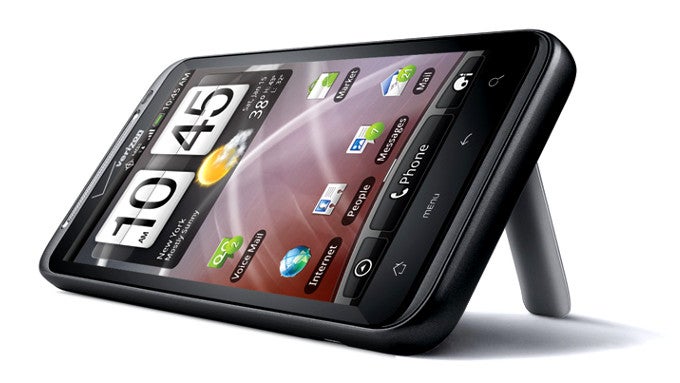Verizon and HTC show the true meaning of 'disastrous software support' - update the HTC ThunderBolt to ICS
This article may contain personal views and opinion from the author.

Does anyone even remember the HTC ThunderBolt? We needed a few minutes to recall its appearance (and specs sheet), and when we finally had the complete image in our heads, we realized just how wrong all of this is.
Verizon has now released an update to Android 4.0 Ice Cream Sandwich for the ThunderBolt. An update, issued in 2013, brings a 2011 OS to a 2011 handset. Isn't this a disaster? How many people are still using the ThunderBolt anyway? Sure, better late than never, but in this case, we think we should look at what's happening from a different angle. How about carriers and Android phone manufacturers stop missing their own deadlines? We mean, the ICS update for the ThunderBolt should have originally come out in August 2012! (This was already late, considering that ICS was ready at the end of 2011.) Instead, it's here half a year later, ready to improve the experience for the five remaining ThunderBolt users.
We've got to hand it to Samsung for at least making efforts to improve in this respect. They are providing the latest Android updates to their top models like the GS III and Note II in a timely manner. Well, they may not be particularly fast with their older devices like the GS II, but at least the critical ICS update has been provided there. Users of HTC's ThunderBolt, however, haven't been so lucky as Samsung's users. And we have to mention that the ThunderBolt is also a high-end model - the first with 4G LTE on Verizon for that matter. It's not some cheap, budget phone.

We interrupt this program to bring you an ice cream sandwich.
We just can't write an article about software updates without mentioning Apple. Apple may be many things, but when it says that an update will come on a specific date (yeah, Apple gives specific dates for its updates), it simply comes. No delays, no roll-out phases. Everyone with a compatible iDevice gets a notification about the update they need to get as soon as the person in Cupertino hits the launch button. Why can't Android manufacturers do the same? We know they have much broader portfolios, but hey, they can at least do it for their once flagship devices. Budget phones don't get too many updates anyway. So, the fact that they have a bigger number of handsets to support is not an excuse.
Unfortunately, this isn't anything new. We've been witnessing these major delays for quite a while now, and it doesn't look like things are going to change anytime soon. The just-released ICS update for the HTC ThunderBolt only confirms that.










Things that are NOT allowed: